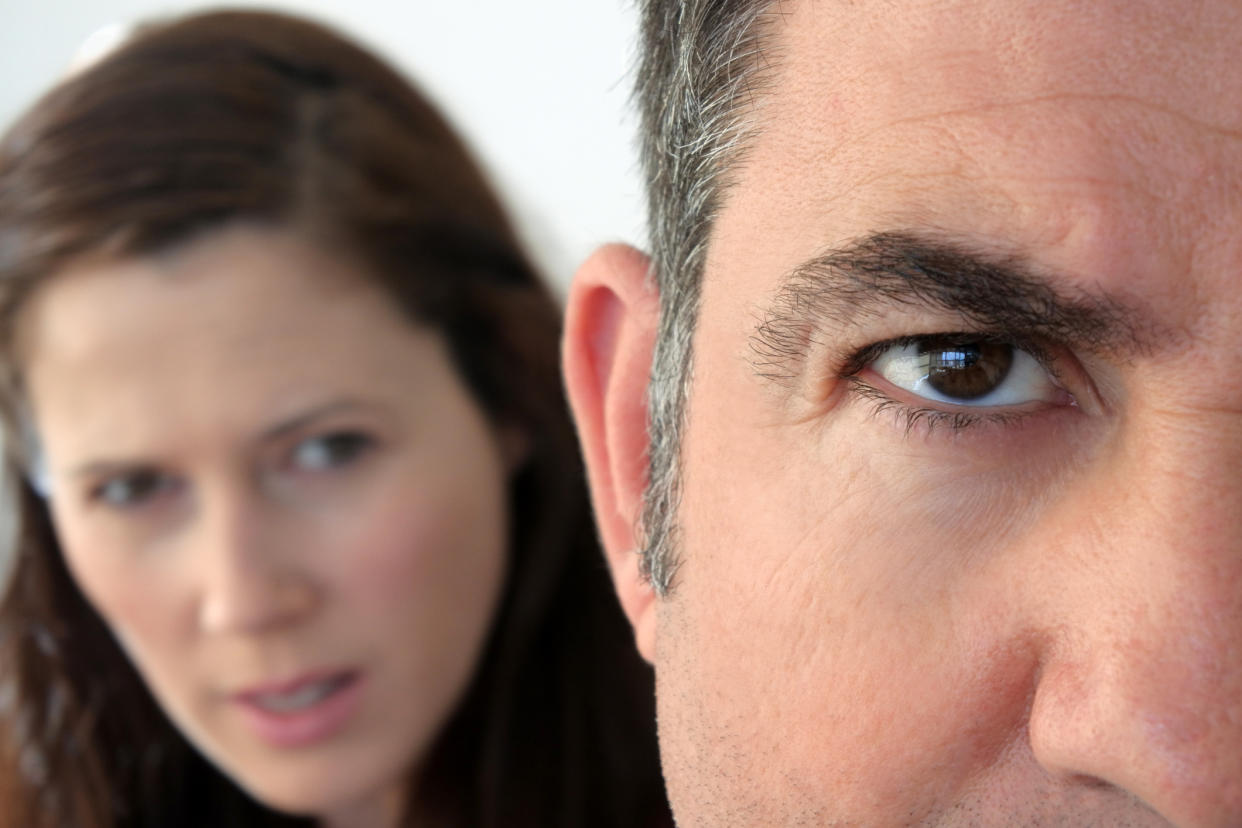Open letter: 'I'm a recovering sex addict'

As part of an ongoing series, Yahoo Canada is profiling personal experiences and opinions in open letters. This letter profiles *John, a recovering sex addict who opens up about how his addiction almost ruined his life. He also weighs in on the sexual harassment allegations plaguing Hollywood.
For more from the Open Letter series, click here.
For me, it wasn’t so much I’m addicted to the feeling of sex, but rather the process. By that I mean physically engaging in intercourse wasn’t what I was craving. What I craved was the hunt, the challenge and finally the accomplishment. This act of accomplishment creates dopamine in my brain, which is highly addictive, and applies to all addictions.
It got so bad that a sex scene in a movie, a beautiful looking woman, or a woman talking about sex would instantly overwhelm me with a rush of adrenaline, which can be quite debilitating to common sense and logic. This is why I believe sex addiction can result in danger to yourself and others, and it’s why I sought help.
ALSO SEE: Woman writes scathing open letter to best friend’s ex-husband

Concerning the sexual harassment allegations against Harvey Weinstein, I believe he had suffered from the same situation, except he had it far worse and therefore lost all control — control of his body and mind that resulted in him crossing the line and putting many women in harm.
By no means is this an excuse, in fact, quite the opposite. This is entirely Weinstein’s fault and there is no defense for his actions, but rather an attempt at an explanation. He clearly didn’t address his issue and seek help until he was negatively impacted by it (significantly I might add) — and in turn, negatively impacted people. What he did was inexcusable, and he should be ashamed, but it also should not be reflective of all sex addicts — instead of what sex addicts can become if they don’t treat themselves.
I believe that everybody, with any addiction, the responsibility is on them to conquer it. They will often need help, but if they don’t seek that help, that’s on them.
But, the problem with sex addiction is that there aren’t any real consequences — until there are huge consequences. For instance, if I’m addicted to gambling, I immediately feel the consequence of losing money. If I’m addicted to drugs, I immediately feel the impact financially as well as physically. With sex addiction, if nothing goes wrong, people may never really know. But once things go wrong, it can be highly dangerous for you and others.
ALSO SEE: Open letter: My sexual assault story

There is still so much taboo and misunderstanding around sex addiction that the support networks aren’t quite there yet, and people aren’t comfortable talking about it. Either they are ashamed or embarrassed, or they are afraid that people simply won’t believe them and judge them.
Moreover, there needs to be a cultural shift when we’re younger to not idolize promiscuous men, like Fonzie, Hugh Hefner, or even Stifler. I’m not suggesting removing them from media, but rather, they just shouldn’t be idolized, when culturally, the pressure and standard is quite the opposite with women where that same behaviour is considered “slutty.”
For me, as a young male growing up, I thought that in order to get acceptance, I had to be sexually successful. Additionally, having some very good looking male friends further created a feeling of having to one-up them, or overcome their good looks. Having a highly addictive personality and also somebody who loves overcoming obstacles and challenges, this set me down what was originally a fairly innocent path towards a very dangerous one.
With every woman I slept with, the more I would want the challenge of sleeping with another. It got to the point that sleeping with married women was a greater challenge and therefore more determined my body and mind got to sleep with them. This not only almost ruined my life, but that of married women, their husbands — it even impacted their children’s lives.
Luckily, in my instances, nobody’s family got impacted except for mine, which made it all that harder to recognize the problem. This sexual trance I was in pretty much took control of me, creating essentially a double life with a double identity that I actually responded to.
ALSO SEE: Open Letter: Lessons from my shitty marriage (and the years that followed)

This obviously had a profound impact on my relationship. I wanted nothing more than to not cheat on my serious girlfriend. I loved her, I enjoyed intimate sex with her, but I would still be overwhelmed with these urges.
After being caught cheating, I was confronted with my own addiction. I took a step back and realized just how out of control this got and how I had truly lost myself. I consequently went down a path of trying to readjust my mind and body. This involved finding other ways to satisfy my adrenaline rush, which included cycling to work, devoted some time to making sure I played my true passion of basketball, buying a kayak, and running (even though I absolutely despise running). These were not only directly beneficial to my physical health, but had an immense impact on my mental health and dealing with this addiction.
I also took a few other steps such as improving my emotional vocabulary – learning words to describe my feelings other than mad, sad, lonely, etc. By learning these words, I am more accurately able to categorize my feelings. Another trick was to constantly remind myself of consequences. As previously mentioned, with sex addiction, the consequences aren’t always obvious or likely, so when you are experiencing a rush, you forget all negative ramifications.
By constantly reminding myself of the life I have and how I really do enjoy it, I am being proactive in not losing control. And finally, I learned to not play with fire. I learned that it’s best to just not put myself in certain situations. It’s not ideal and it’s very limiting, but when you are addicted, you need to take those preventative measures.
Again, this isn’t to say that every sex addict is a bad person, or that they even have ever done anything wrong. In my case, I have. I have crossed the lines a few times and those actions were not reflective of who I am today, but were of what I was at the time. People learn and grow, and I learned, regressed, and have since grown again.
ALSO SEE: Open letter: Why no tan is a good tan

Back to the sex allegations plaguing Hollywood — I think this is something Dustin Hoffman struggled with in his apology. (Editor’s note: In 1985, a 17-year-old intern on the TV film “Death of a Salesman” wrote an essay for the Hollywood Reporter that claims Hoffman grabbed her buttocks and made vulgar comments to her — and others — on the set. In a statement, Hoffman responded: “I have the utmost respect for women and feel terrible that anything I might have done could have put her in an uncomfortable situation. I am sorry. It is not reflective of who I am.”)
Most accounts, particularly in the last couple of decades, put him as a tremendously nice person. My family met him on the set of “Hook” and he was incredibly kind and even spent time hanging out with my 11-year-old brother.
However, he has recently refused to admit that his alleged actions are reflective of who he is. John Oliver even confronted him about this.
Were his comments at the time embarrassing? Yes. Did they make women uncomfortable? Yes. But do they alone make him a bad person? No. Additionally, it’s not even clear or likely that he was a sex addict, but rather one legacy piece of a culture that has changed dramatically over the last four decades towards sexual misconduct in the workplace.
For some, the comments they make are seemingly innocent and harmless; However, they may make people uncomfortable. That said, literally anything could make at least somebody offended. I could make a comment about how I need to lay off the sugar or I’ll die of diabetes, and that could very much offend somebody who is or has been affected by diabetes. Does that make that comment categorically wrong? I don’t know. These norms are forged by society.
ALSO SEE: Open letter: I’ve donated my hair for 18 years. I never thought I’d be on the receiving end

The reason why I bring this up is that sex addicts are especially susceptible to this societal acceptance or rejection of comments and actions. Their addiction will cause them to push those boundaries and cross the lines. The safest bet is to never do anything without consent. Meaning, you can never give somebody a kiss, a pat on the shoulder, or any type of physical contact without first having consent. As a sex addict, this can result in some very negative circumstances for you and the other. It’s all the more likely a sex addict would aim for that kiss.
It’s on the sex addict to recognize and treat himself, to protect potential victims from ever becoming victims as well as to protect themselves for getting into situations where they feel they may have done nothing wrong. Similarly, somebody who is a sex addict and does nothing to treat it, they are entirely responsible for their actions and therefore there is no excuse for these accused Hollywood moguls. There is, like almost everything, an explanation. And to judge without listening to an explanation does nothing in resolving this issue.
People need to be empathetic to innocent, good people who have sex addictions before it spirals out of control and creates more Harvey Weinstein’s. The next time somebody says they are a sex addict, try to not dismiss it as an excuse, but rather somebody who is beyond denial and actively reaching out for help.
*Name changed for anonymity. Opinions expressed in this open letter do not necessarily reflect those of Yahoo Canada.
Let us know what you think by commenting below and tweeting @YahooStyleCA!
Follow us on Twitter and Instagram.


